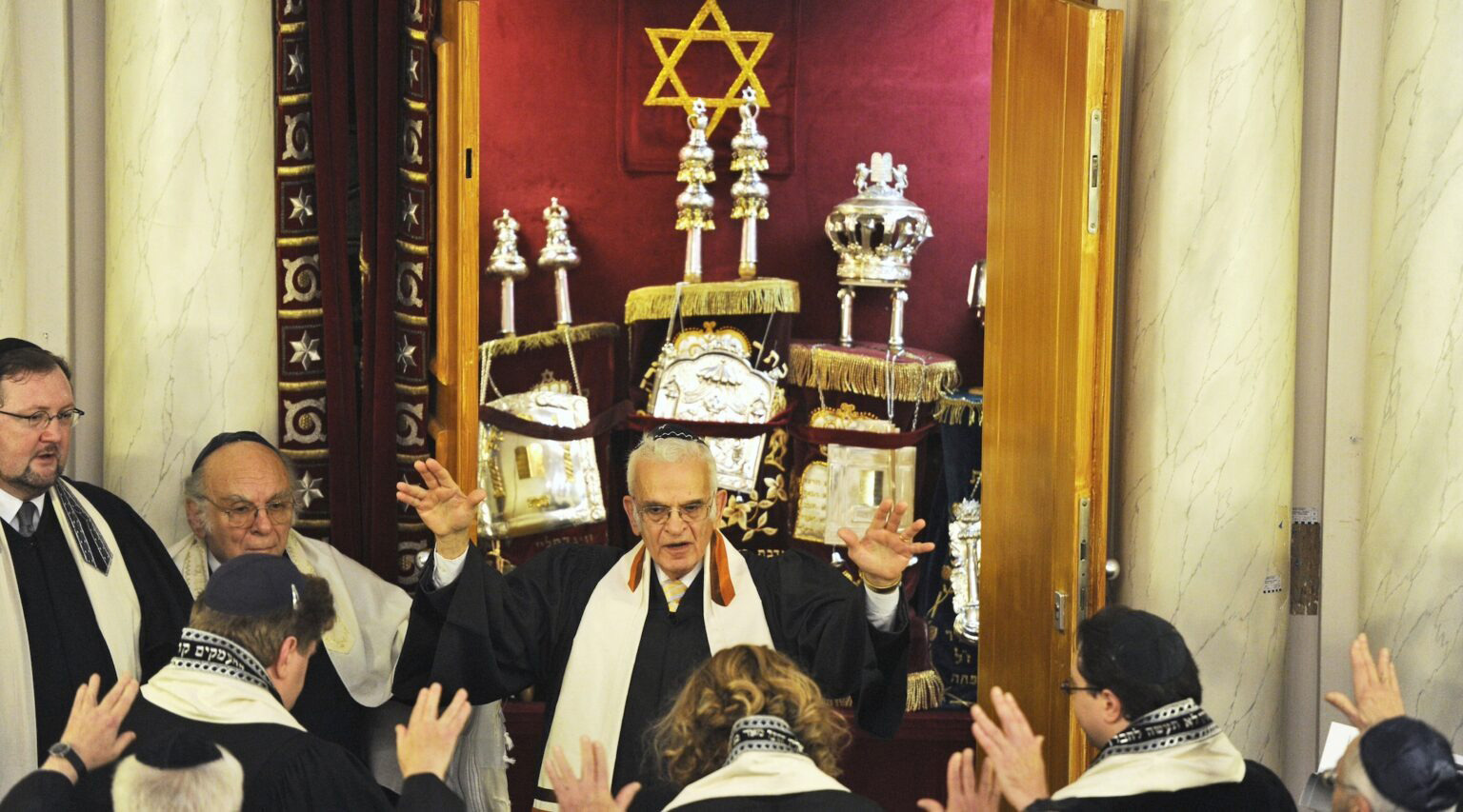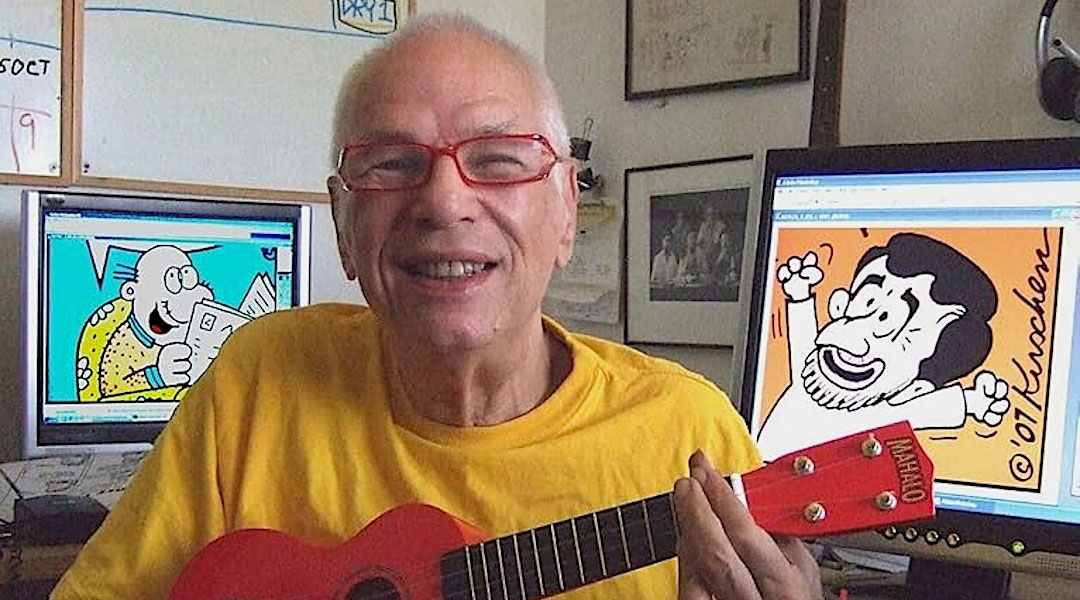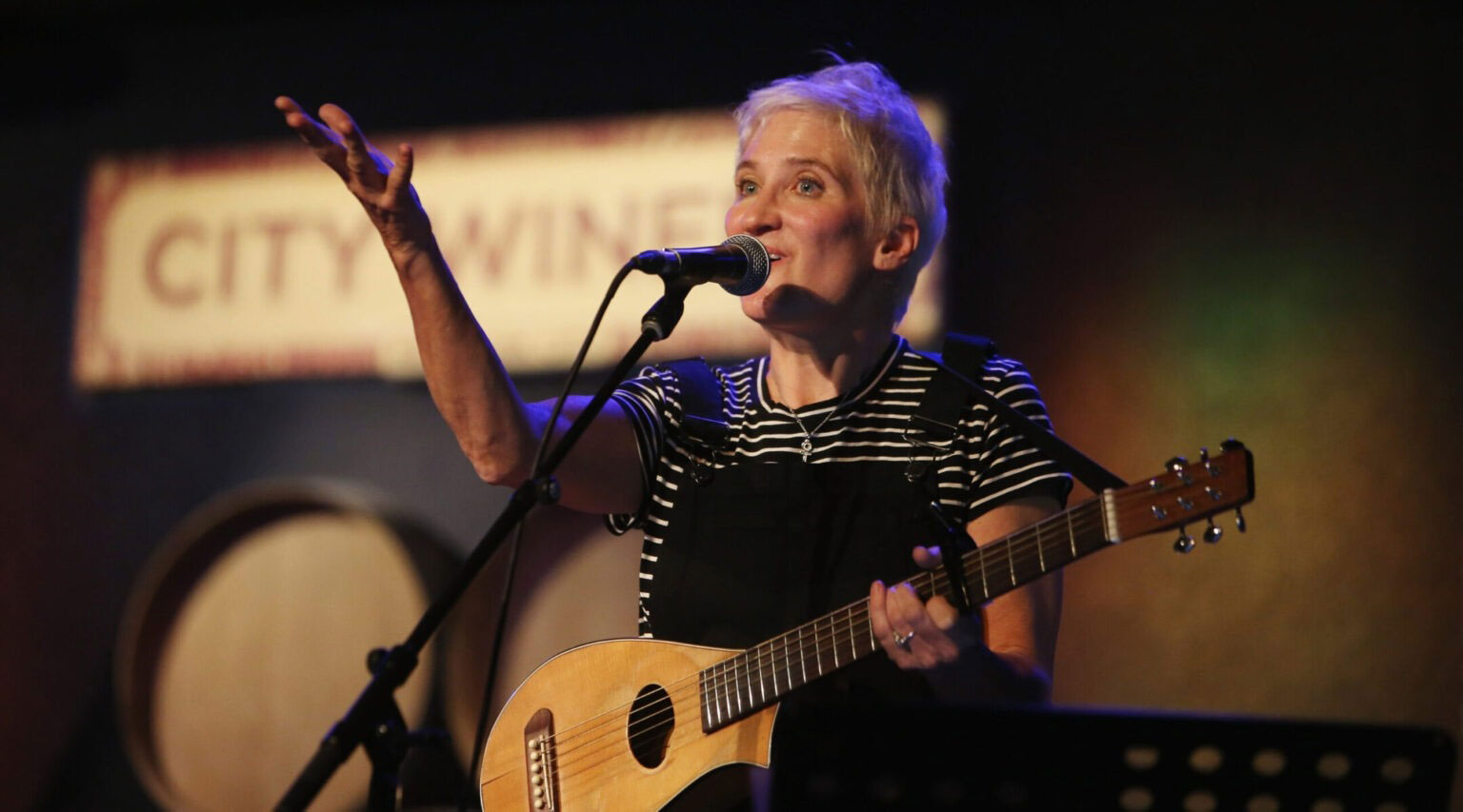Courtesy of JTA. Photo credit: Odd Andersen/AFP via Getty Images
Rabbi Walter Jacob, center, ordains three rabbis during a ceremony at the Pestalozzi strasse Synagogue in Berlin, Nov. 4, 2010
(JTA) — Rabbi Walter Jacob, who 60 years after he left Germany as a refugee returned to help revive its Liberal Jewish community, died Oct. 20 at his home in Pittsburgh. He was 94.
The longtime rabbi of Pittsburgh’s Rodef Shalom Congregation, a Reform synagogue, Jacob descended from a line of rabbis in Germany that extended back 400 years. In 1999, he honored that legacy by founding the Abraham Geiger College at the University of Potsdam, the first Liberal, or Reform, rabbinical seminary in continental Europe to open since the Holocaust.
Germany is “rebuilding a really solid Jewish life, and it is a pretty good beginning,” said Jacob, then president of Geiger College, in 2006, when the seminary was about to ordain the first class of Liberal rabbis in Germany since 1942. “My ancestors for 16 generations were rabbis in Germany and Central Europe. I am glad that there will be new generations of rabbis.”
Bucking an Orthodox establishment in Germany that was reluctant to extend recognition to non-Orthodox congregations, as well as internal schisms among Liberal congregations, Jacob helped the Reform movement in Germany grow from just a handful of member communities to more than 30 by 2023.
“I was privileged to know Walter not just as an outstanding leader in our movement but as a warm and caring rabbi deeply committed to passing on his love of Judaism to others,” Rabbi Lea Mühlstein, chair of the European Union for Progressive Judaism, said in a statement. “A deep thinker, he always had some important reflections to share but, above all, he was a true mensch who took great joy from seeing other people succeed.”
Jacob served as rabbi of his Pittsburgh congregation for 42 years, and for the last 27 years as its rabbi emeritus. From 1992-94 he was chair of the Central Conference of American Rabbis, the organization of Reform rabbis, and from 1990-94 the vice president of the World Union for Progressive Judaism.
The family fled Nazi Germany to London in 1939 and then to Missouri where his father worked as a rabbi starting in 1943. Walter Jacob earned a bachelor’s degree from Drury College in Springfield, Missouri in 1950, and his ordination and a master’s degree from the Reform movement’s Hebrew Union College-Jewish Institute of Religion in 1955. He received a doctorate from the same institution in 1961.
Jacob and Irene Loewenthal were married in 1958. The two were cousins; her family, from Hamburg, was able to flee to London in 1938. The couple’s oldest daughter Claire was born with a disability, and the Jacobs established a facility for children like her, Horizon Home, that is now part of Mainstay Life Services in Pittsburgh.
Irene Jacob died in 2012. They were predeceased by their children Claire, Kenneth and Daniel.
Jacob was hired at Rodef Shalom by Rabbi Solomon Freehof in 1955 and served as a chaplain in the United States Air Force in the Philippines from 1955 to 1957, returning to Pittsburgh to work at Rodef.
In 1986, Jacob and his wife established the Biblical Botanical Garden at Rodef Shalom, a project that received national and international attention. Jacob performed interfaith work; among his 43 books is “Christianity Through Jewish Eyes: The Quest for Common Ground” (1984). He taught at Chatham College and the Pittsburgh Theological Seminary, and served as president of the Religious Education Association of America from 1981-85.
In 1996, Jacob returned to Germany and served as honorary rabbi of the Liberal Jewish congregation Beth Shalom in Munich. Noting that the country did not have its own seminary for Liberal rabbis, he vowed to establish one, and named it for the 19th-century German rabbi considered the father of Reform Judaism.
In 2015, the college he founded awarded then-German Chancellor Angela Merkel its Abraham Geiger Prize. In her remarks, Merkel noted “what a great gift it is that there is once again a diverse and rich Jewish life in Germany.” Its founding rector was among the speakers at Jacob’s funeral at Rodef Shalom on Oct. 22.
In his remarks at the funeral, Rabbi Andrew Busch of the Baltimore Hebrew Congregation, who served as Jacob’s assistant at Rodef Shalom, quoted Jacob from a 1995 article written for the Solomon Freehof Institute for Progressive Halacha, which Jacob founded.
“Judaism has always been a highly optimistic religion with a love of life which permeates every aspect of it,” Jacob wrote. “Our love of life must lead to a desire to perpetuate it and so every human must do his or her best to continue it into the next generation.”





